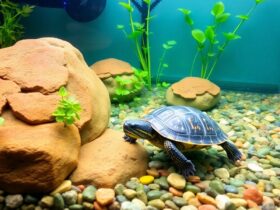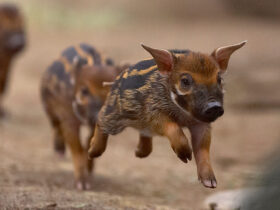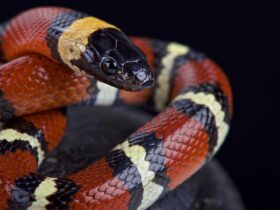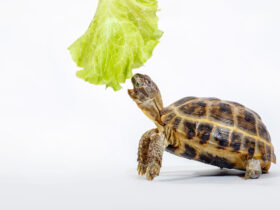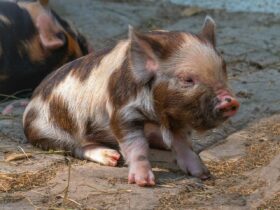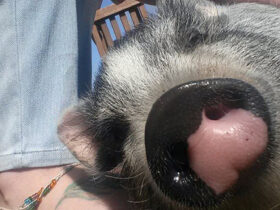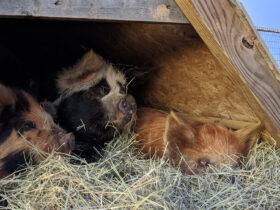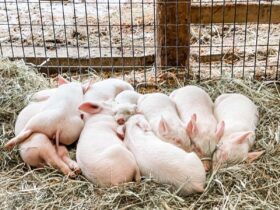Mini pigs are adorable, intelligent, and unique pets that require specialized care to thrive. While their small size and playful nature make them popular, owning a mini pig is a significant responsibility. This guide provides a detailed overview of mini pig health, focusing on their diet, housing, healthcare, training, and the myths surrounding their care. Whether you’re a new or experienced mini pig owner, this article will help you ensure your pet lives a happy and healthy life.
Diet and Nutrition
Proper nutrition is the cornerstone of mini pig health. Mini pigs are prone to obesity, which can lead to serious health issues. To keep your mini pig healthy, it’s essential to provide a balanced diet and monitor their food intake.
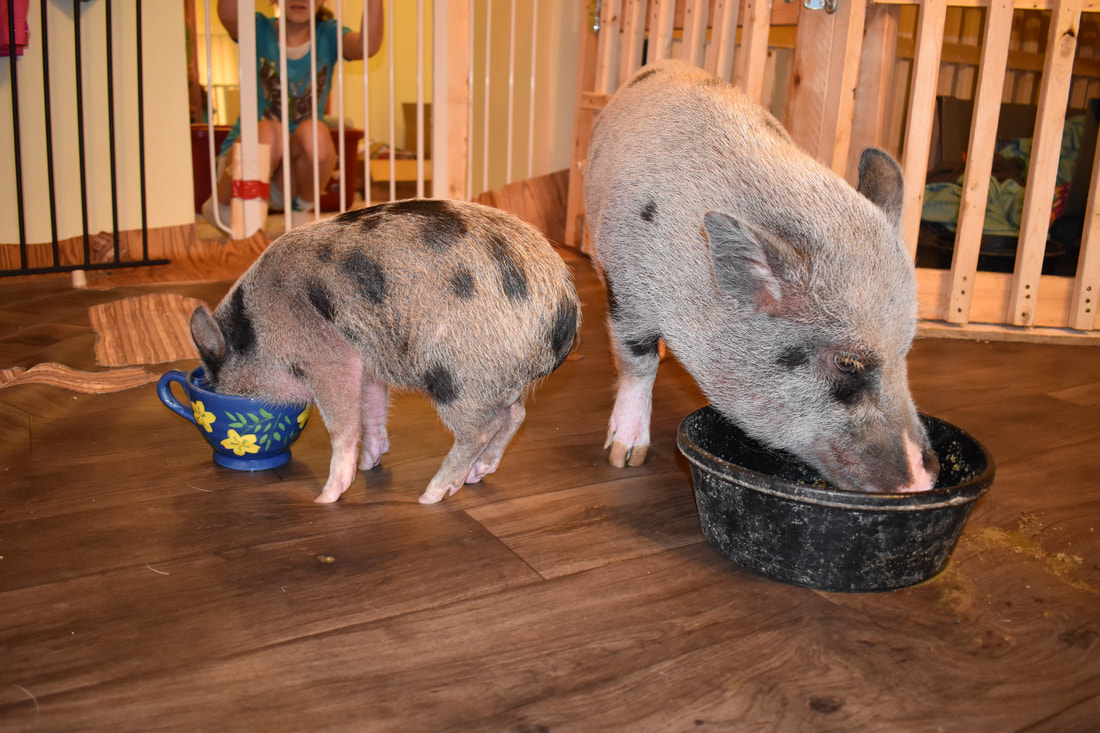
Key Tips for Mini Pig Nutrition:
- Measured Feeding: Mini pigs should not free-feed. Overeating can lead to obesity, which is a common health issue in mini pigs. Instead, feed them approximately 2-3% of their body weight daily, divided into two or three meals. For instance, a 50-pound mini pig should eat no more than 1 pound of food per day.
- High-Quality Pig Food: Use a specially formulated mini pig food that meets their nutritional needs. Avoid feeding them food meant for farm pigs, as it is designed for rapid growth and can lead to obesity in mini pigs.
- Fruits and Vegetables: While mini pigs can enjoy fruits and vegetables, these should only be given in small amounts as treats. Overfeeding sugary fruits can lead to tooth decay and weight gain.
- Fresh Hay: Providing fresh hay not only increases fiber intake but also helps mini pigs feel full, reducing the risk of overeating.
- Rooting Box: Create a rooting box filled with dirt, mulch, or plastic balls. Scatter their food and treats inside to encourage natural foraging behavior, which is both mentally stimulating and satisfying for your pig.
- Avoid Sugary Foods: Sugary snacks, including processed treats, should be avoided to prevent dental problems and weight issues.
By following these guidelines, you can maintain your mini pig’s weight and overall health.
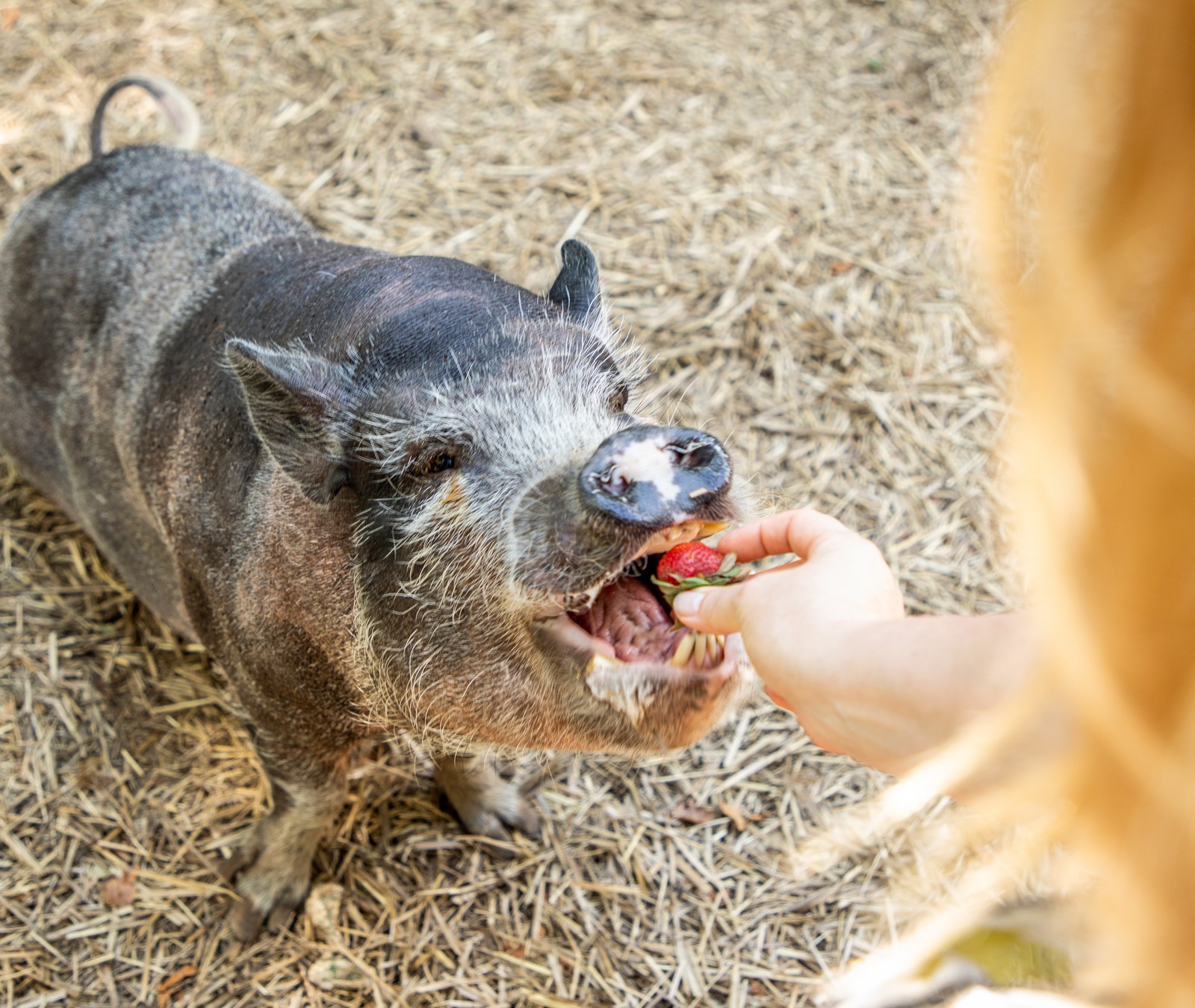
Housing and Environment
Mini pigs are highly adaptable but require a safe, clean, and comfortable environment to thrive. Whether housed indoors or outdoors, their living space should cater to their physical and behavioral needs.
Indoor Housing:
- Designated Area: If you keep your mini pig indoors, provide a specific area such as a laundry room. Include a litter box, sleeping area, and a rooting box to keep them entertained.
- Temperature Sensitivity: Mini pigs are sensitive to extreme temperatures. Ensure their indoor space is dry, draft-free, and climate-controlled.
Outdoor Housing:
- Spacious Pen: A secure outdoor pen with ample space for rooting and exploring is ideal. Include shaded areas, access to clean water, and a separate area for elimination.
- Secure Fencing: Mini pigs are strong and intelligent, so ensure the fencing is sturdy and escape-proof.
- Predator Protection: When outdoors, protect your mini pig from potential predators, especially in rural areas.
Providing a safe and stimulating environment will help your mini pig stay physically and mentally healthy.
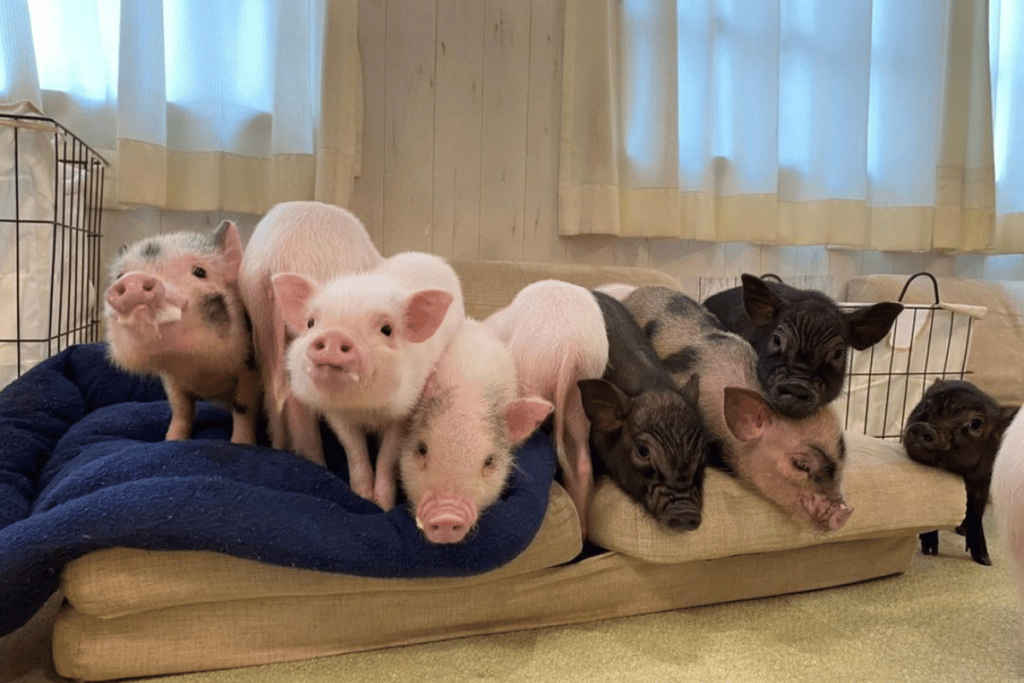
Health Care
Mini pigs require regular veterinary care to prevent and address health issues. Finding a veterinarian experienced in treating pigs is crucial before adopting one.
Essential Health Care Practices:
- Annual Checkups: Schedule yearly health checkups to monitor your mini pig’s overall health and catch potential issues early.
- Spaying/Neutering: Spaying or neutering your mini pig is important for both health and behavioral reasons. It can prevent reproductive health issues and reduce aggression.
- Vaccinations: Vaccinate your mini pig based on their exposure risk to other animals. Common vaccines include those for erysipelas and leptospirosis.
- Deworming: Deworm your mini pig twice a year to prevent parasitic infections.
- Hoof Trimming: Regular hoof trimming is essential to prevent foot abnormalities and ensure your pig can move comfortably.
- Recognize Health Issues: Be aware of common health problems in mini pigs, such as:
- Obesity
- Respiratory diseases
- Gastrointestinal issues
- Urinary tract infections
- Eye problems
- Toxin ingestion
By staying proactive about your mini pig’s health, you can ensure they live a long and happy life.
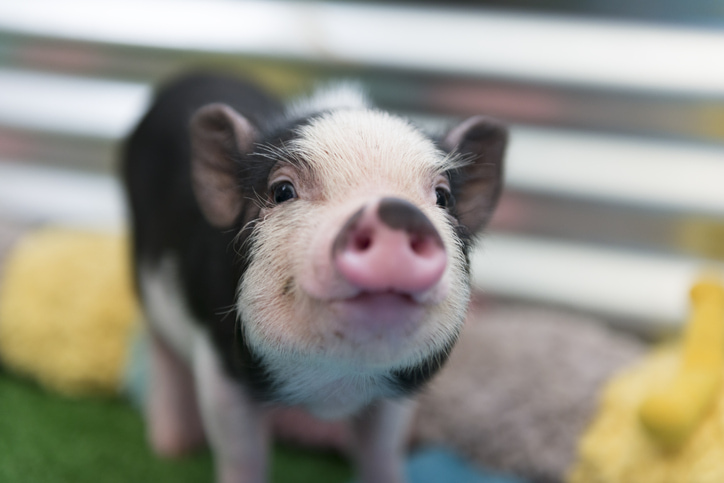
Training and Behavior
Mini pigs are highly intelligent and can be trained using positive reinforcement. Proper training not only enhances their behavior but also strengthens the bond between you and your pet.
Training Tips:
- Start Early: Begin training your mini pig as soon as possible. Early training helps them adapt to wearing a harness and leash.
- Basic Commands: Teach simple commands like “sit,” “stay,” and “lie down” using treats and praise as rewards.
- Mental Stimulation: Provide toys, puzzles, and rooting opportunities to keep your mini pig mentally stimulated and prevent boredom.
- Socialization: Introduce your mini pig to other animals and people from a young age to reduce aggression and dominance behaviors.
- Address Aggression: Mini pigs can become aggressive if they lack social interaction or opportunities to express natural behaviors. Consistent training and socialization can help mitigate these issues.
With proper training, your mini pig can become a well-behaved and happy companion.
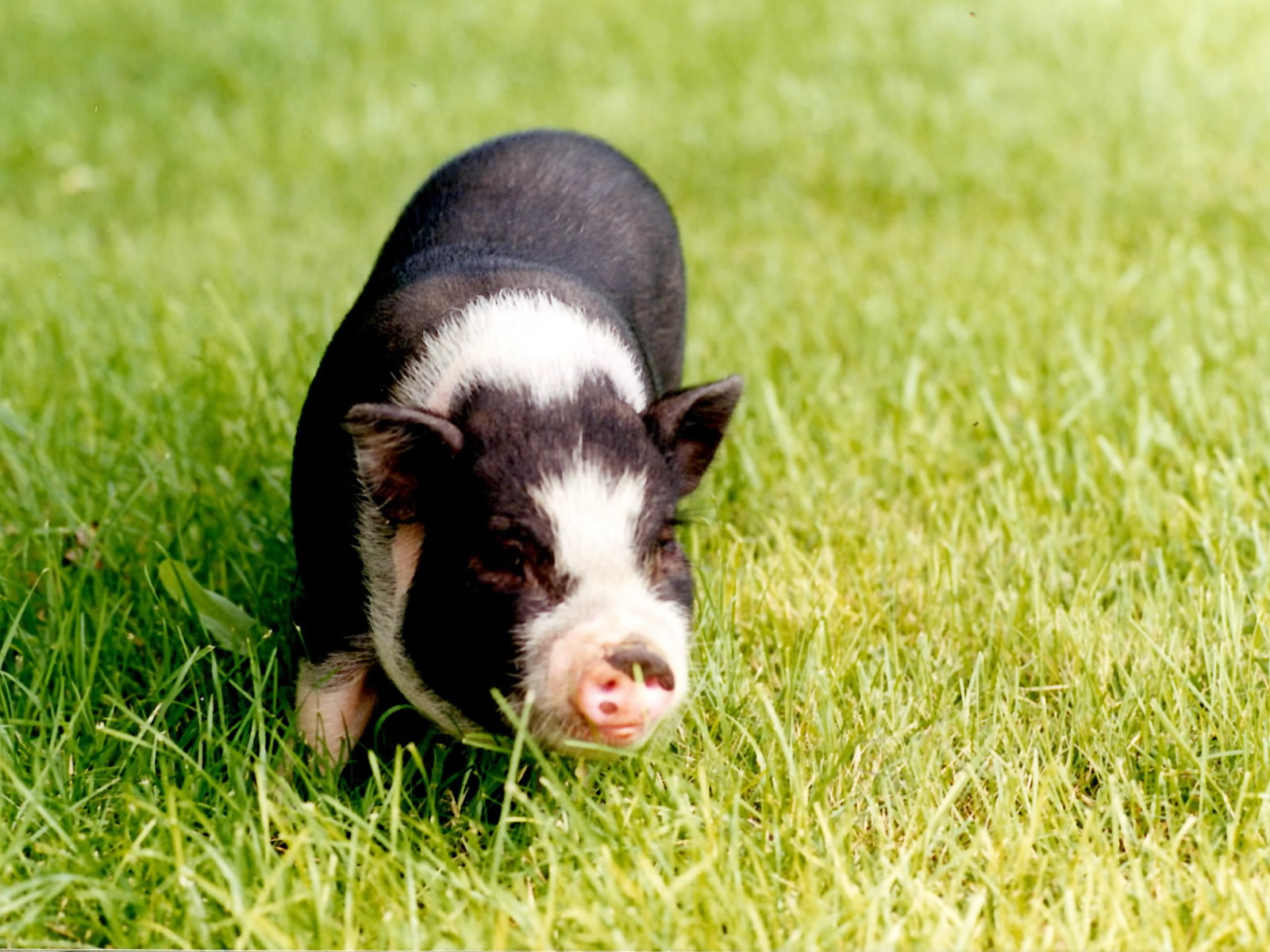
Mini Pig Myths
There are many misconceptions about mini pigs that can lead to unrealistic expectations. Let’s debunk some of the most common myths:
- Myth: Teacup Pigs Exist
There is no such thing as a “teacup” pig. All mini pigs, even those from small breeds, will grow to weigh at least 75 pounds or more. - Myth: Mini Means Small
The term “mini” is relative. Mini pigs are smaller than farm pigs, but they can still grow to be quite large, often weighing between 75 and 150 pounds.
Understanding the reality of mini pig size and care requirements is essential for responsible ownership.
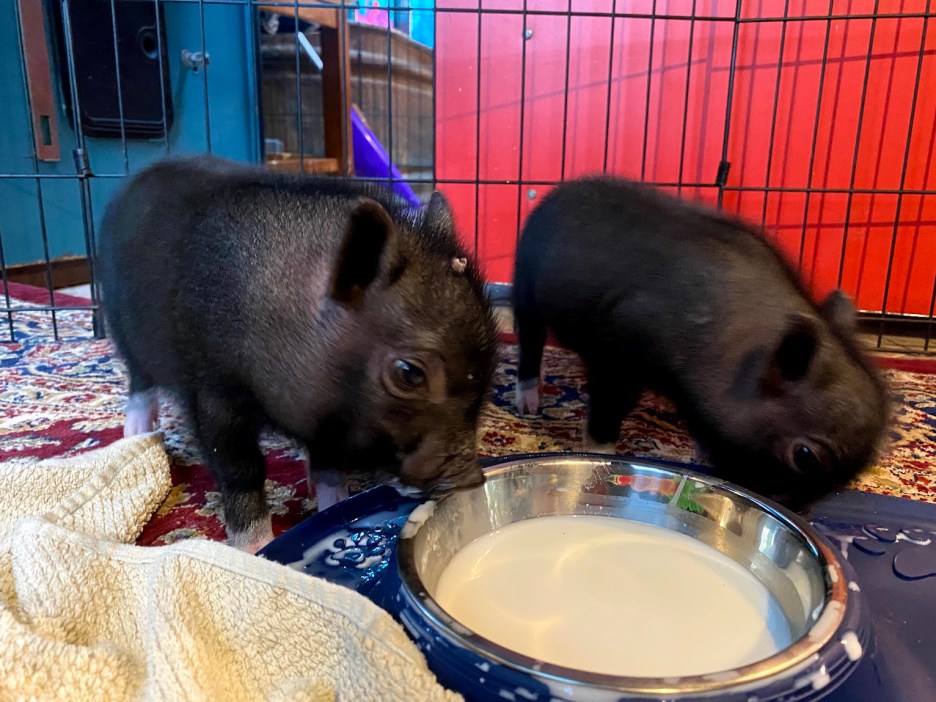
Adopting a Mini Pig
Adopting a mini pig is a long-term commitment. Before bringing one into your home, consider the following:
- Check Local Laws: Ensure that mini pigs are allowed in your area, as some municipalities have restrictions on keeping pigs as pets.
- Do Your Research: Learn about mini pig care, including their dietary, housing, and healthcare needs.
- Adopt Responsibly: Choose a reputable shelter or rescue organization to adopt your mini pig. Avoid breeders who promote “teacup” pigs, as this is a misleading term.
Responsible adoption ensures that you’re prepared to meet your mini pig’s needs.
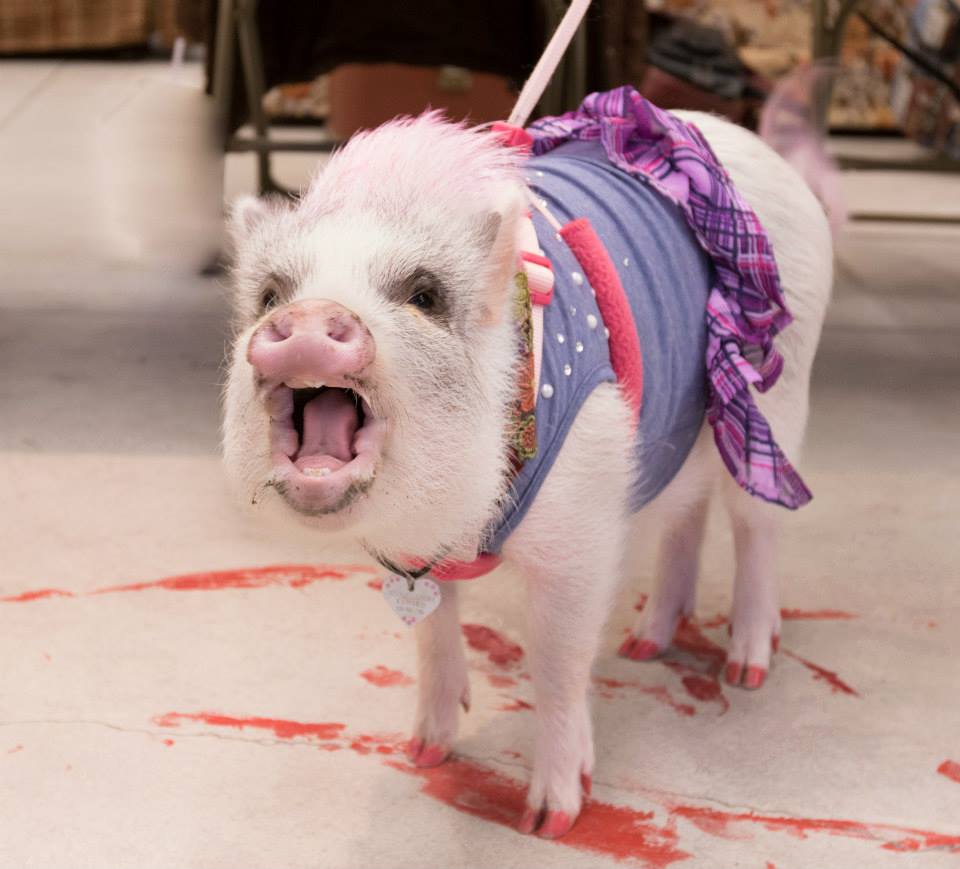
Importance of Responsible Ownership
Owning a mini pig is a significant responsibility. These intelligent animals require:
- A specialized diet
- Plenty of space to roam and root
- Regular veterinary care
- Consistent training and socialization
Failing to meet these needs can lead to behavioral problems and health issues. Unfortunately, many mini pigs end up in shelters or abandoned due to unrealistic expectations. By committing to responsible ownership, you can provide your mini pig with a loving and fulfilling life.
FAQs About Mini Pig Health
1. What should I feed my mini pig?
Feed your mini pig a high-quality mini pig food, along with small amounts of fruits, vegetables, and fresh hay. Avoid sugary foods and overfeeding to prevent obesity.
2. How much space does a mini pig need?
Mini pigs need plenty of space to roam and root. An outdoor pen with secure fencing is ideal, but indoor pigs should also have a designated area with enrichment activities.
3. How do I find a veterinarian for my mini pig?
Look for a veterinarian experienced in treating pigs. Contact local farms or animal rescues for recommendations.
4. Can mini pigs live indoors?
Yes, mini pigs can live indoors if provided with a clean, designated space. However, they also need outdoor time for rooting and exploration.
5. How big do mini pigs get?
Mini pigs typically weigh between 75 and 150 pounds when fully grown. There is no such thing as a “teacup” pig.
By following this comprehensive guide, you can ensure your mini pig stays healthy, happy, and well-cared for. For more information on mini pig care, consult a veterinarian or reputable pig rescue organization.
